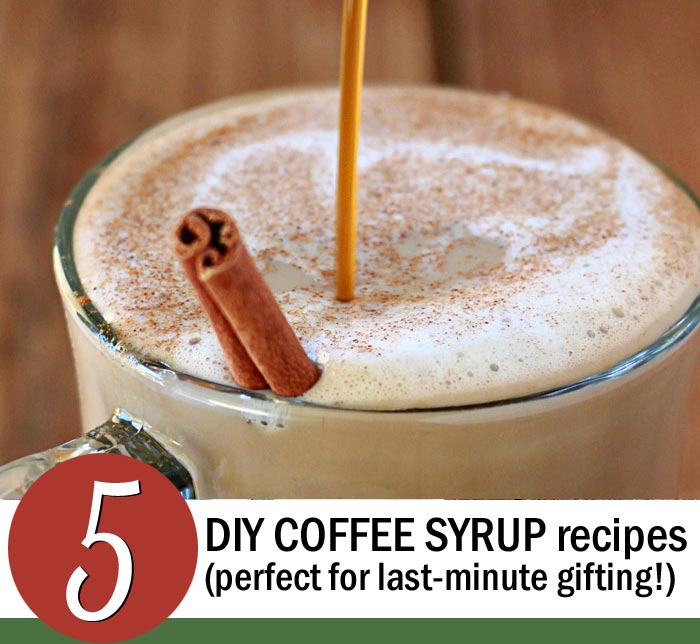DIY coffee syrup opens a world of flavor possibilities, allowing you to craft personalized coffee creations without the limitations of store-bought options. The allure of making your own syrup lies in the ability to control sweetness, experiment with unique flavor combinations, and even explore ethical and sustainable practices.
Table of Contents
This guide will walk you through the essentials of DIY coffee syrup, from basic recipes to creative variations, ensuring you have the tools and knowledge to brew up a symphony of flavors in your own kitchen.
Ethical Considerations and Sustainability: Diy Coffee Syrup

Making your own coffee syrup can be a more sustainable and ethical choice compared to purchasing commercially available options. By controlling the ingredients and reducing waste, you can minimize your environmental impact and support local producers.
Environmental Impact, Diy coffee syrup
The environmental impact of homemade coffee syrup versus commercially available options is multifaceted. While homemade syrup offers potential advantages in terms of reduced packaging and transportation, it’s essential to consider the sourcing of ingredients and energy consumption involved in the production process.
- Packaging and Transportation: Commercially produced syrups often come in plastic bottles, which contribute to plastic waste and require energy for production and transportation. Making your own syrup eliminates this aspect, especially if you reuse glass jars or other containers.
- Ingredient Sourcing: The environmental impact of ingredients depends on their origin and processing methods. For example, organic sugar cane production might have a lower carbon footprint than conventional methods, but the distance traveled to source the sugar can also influence its overall environmental impact.
- Energy Consumption: While homemade syrup requires energy for cooking and cooling, the overall energy consumption might be lower compared to the energy required for large-scale production, packaging, and transportation of commercially available options.
Waste Reduction and Sustainability
By taking a few simple steps, you can significantly reduce waste and promote sustainability in your coffee syrup-making process:
- Reusable Containers: Opt for reusable glass jars or other containers to store your homemade syrup. This eliminates the need for single-use plastic bottles.
- Compostable Packaging: If you do use disposable packaging, choose compostable options like paper or cornstarch-based containers.
- Reduce Food Waste: Use leftover coffee grounds or other ingredients in your syrup recipe, minimizing food waste.
- Energy Efficiency: Use energy-efficient appliances for cooking and cooling, reducing your overall energy consumption.
Ethical Sourcing and Local Producers
Choosing locally sourced ingredients and supporting local producers is a crucial aspect of ethical coffee syrup making. This practice not only minimizes the environmental impact associated with transportation but also fosters a more sustainable and equitable food system.
- Local Sugar Sources: Consider using locally produced sugar, such as cane sugar from nearby farms or honey from local beekeepers. This reduces transportation distances and supports local economies.
- Fair Trade Ingredients: When sourcing ingredients like cocoa or vanilla, look for fair trade options that ensure ethical working conditions and fair compensation for farmers.
- Supporting Local Businesses: Purchase ingredients from local farmers markets, grocery stores, or specialty shops, supporting local businesses and reducing transportation distances.
With DIY coffee syrup, you can elevate your coffee routine, unleash your creativity, and enjoy a delicious, personalized beverage experience. From classic flavors to unique combinations, the possibilities are endless, making every cup a flavorful adventure.
Making your own coffee syrup is a fun and easy way to customize your coffee. You can experiment with different flavors and sweeteners to create a perfect blend. While you’re experimenting with flavors, remember that certain medications like toprol xl can interact with caffeine, so it’s always a good idea to check with your doctor before making any significant changes to your diet, including adding homemade syrups.

